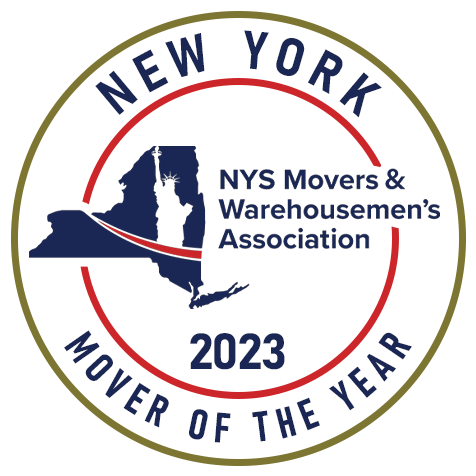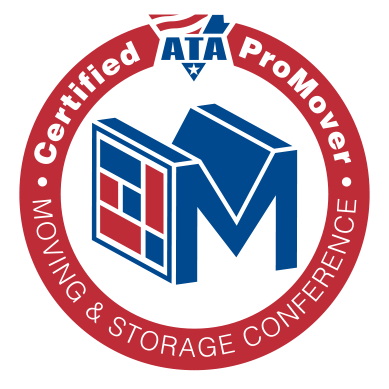14 Apartment Moving Costs to Consider
Moving to a new apartment is exciting—until the bills start rolling in. Most people drastically underestimate what apartment moving actually costs, often budgeting only for the truck rental and missing dozens of hidden expenses that can easily push costs into the thousands. From packing supplies and utility deposits to parking permits and cleaning fees, the real price tag of moving involves far more than you’d expect. Here’s what to budget for and how to save money along the way.
Packing Supplies
Basic supplies:
- Boxes
- Bubble wrap
- Packing tape
- Markers
- Packing paper
“If you already have plenty of supplies and manage to find free boxes, you might spend as little as $50, even on a DIY move. If you choose to buy absolutely everything, you could spend as much as $500,” estimates Move.org. “ Most people will fall somewhere in between.”
Hiring Professional Movers
Local moves (under 50 miles): Average $183 per hour for two movers and a truck (MoveBuddha)
Long-distance moves (over 100 miles): Average $4,890 – For a distance of 1,000 miles for a 2-3 bedroom move of approximately 7,500 pounds (Moving.com)
What affects the price:
- Apartment size (studios cost less than 3-bedrooms)
- Weight of shipment (for long-distance moves)
- Distance (for long-distance moves)
- Moving season (May–September is the most expensive)
- Building access (walk-ups and tight parking add fees)
- Stairs (usually charged after 1–2 flights)
Service options:
- Full-service movers handle everything from packing to unpacking. Prices range from $1,200 to $29,000, with an average of around $9,060 (Move.org).
- Labor-only movers just load/unload your rental truck, average $260 for two helpers for 2 hours (MovingHelp.com).
Pro tip: Get at least three written estimates and watch for hidden charges like fuel surcharges and equipment fees.
Renting a Moving Truck
Local moves (under 50 miles): Around $20-$30/day plus mileage fees (This Old House)
One-way long-distance: $2,097-$4,659+, mileage limits may apply (This Old House)
Additional costs to expect:
- Fuel: Trucks get 6–12 MPG. A 500-mile trip could cost $175 in gas.
- Insurance: $15–$30/day for basic coverage (Agoyu)
- Equipment rentals: Dollies and blankets
- Mileage overages: Fee per extra mile
Choosing the right size:
- 10–12 ft: Studio to 1-bedroom
- 14–17 ft: 2-bedroom
- 20–26 ft: 3+ bedrooms
Moving Insurance
Basic coverage: Most movers include Released Value Protection at no cost, reimbursing 60 cents per pound. A damaged 50-pound TV? You’d get $30.
Other options:
- Full-Value Protection: Covers repair or replacement at current market value. Cost varies per mover.
- Third-party insurance: Needed for truck rentals. 1% to 5% of the estimated value of your items (Angi.com).
Smart move: Check if your renters’ or homeowners’ insurance covers moving damage before buying extra coverage.
Temporary Storage
Average monthly costs:
- Small unit (5×5 ft): $40–$75 (SpareFoot)
- Medium unit (10×10 ft): $100–$250, higher in cities like NYC or San Francisco (Extra Space Storage & SpareFoot)
- Large unit (10×15 ft): $125–$250 (Extra Space Storage)
Add-on fees may apply for climate control, 24/7 access, and administrative services, including locks. (Extra Space Storage)
Timing matters: Prices spike May–September. Book early for better rates and availability.
Utility Setup Costs
Budget up to $500 total for new utility connections:
- Electricity: $30–$100 connection fee, plus $100–$300 deposit (ApartmentGuide)
- Gas: $30–$70 activation, plus deposit (ApartmentGuide)
- Water/sewer: $25–$75 setup (sometimes included in rent) (ApartmentGuide)
- Internet: $50–$100 installation (ApartmentGuide), often waived with contracts
- Cable: Similar to internet pricing
Important: Schedule transfers at least 2 weeks before moving to avoid service gaps and rescheduling fees.
Cleaning Services
Standard move-out cleaning:
- Studio: $90–$130 (Angi.com)
- 1-bedroom, 1 bath: $100-$190 (Angi.com)
- 2-bedroom, 2 bath: $140–$210 (Angi.com)
- 3-bedroom, 2 bath: $180–$300 (Angi.com)
Deep cleaning extras:
- Intensive cleaning
- Carpet shampooing
- Pet odor treatment
Why it matters: Professional cleaning helps you get your full security deposit back. Many landlords require cleaning receipts.
Parking Permits and Elevator Reservations
Street parking permits: Cost depends on your city. Apply 3–7 days in advance.
Elevator reservations:
- Booking fee
- Refundable deposit (returned if no damage occurs)
Penalties for skipping these: Parking fines can exceed $100, and missing elevator reservations may mean rescheduling your entire move.
Security Deposits
What you’ll pay: Most landlords require 1–2 months’ rent as a security deposit.
Common deductions that reduce your refund:
- Unpaid rent
- Wall damage (holes, scuffs, unauthorized paint)
- Stained carpets
- Dirty appliances or excessive grime
- Cleaning fees
Protect your deposit: Take date-stamped photos at move-in and move-out. Keep cleaning receipts.
Pet Transportation
Travel costs:
- In-cabin flight: Average $150 each way (WorldCare Pet Transport)
- International moves (in-cabin): Average $200 each way (WorldCare Pet Transport)
Additional expenses:
- Airline-approved carrier
- Vet visits and health certificates
- Vaccinations and microchipping as required
Preparation tip: Introduce pets to travel crates weeks in advance to reduce stress.
Travel Expenses for Long-Distance Moves
Fuel costs: A 1,000-mile move in a 20-foot truck (averaging 10 MPG) needs about 100 gallons. At $3.50/gallon, that’s $350 in gas.
Tolls: Can range from $5–$60+ per state, especially on I-95 through the Northeast.
If staying overnight:
- Hotels: $100–$200 per night
- Meals: $30–$50 per person, per day
Flying instead? National average domestic airfare was $397.12 as of Q1 2025 (Bureau of Transportation Statistics), plus $30–$60 per checked bag.
Furniture Disassembly and Assembly
Professional labor: $50–$150 per hour for movers to take apart and reassemble furniture (Angi.com)
Common items requiring service:
- Platform beds: 30–60 minutes
- Sectional sofas
- Complex IKEA furniture
Tool rentals (if DIY):
- Power drill
- Furniture dolly
Lost Wages
Don’t forget the cost of time off work. Calculate:
- Hours/days needed for packing, moving, and unpacking
- Your hourly or daily wage
- Whether you’ll use paid or unpaid leave
Example: Two 8-hour unpaid days off at $25/hour = $400 in lost income
Weekend moves preserve weekday income but often come with higher mover rates and limited availability.
Unexpected Fees to Watch For
- Fuel surcharges: Added by many moving companies
- Stair carry fees: First 1-2 flights usually included, fee charged per flight beyond that
- Long carry fees: Applied when movers can’t park within 75 feet
- Shuttle services: If a large truck can’t access your building
- Rescheduling fees: For changes made within 48 hours
Avoid surprises: Request itemized, written estimates that list all potential fees before signing any contract.
The Bottom Line
Moving costs extend far beyond hiring movers or renting a truck. By understanding these expenses upfront and planning strategically, you can avoid budget surprises and make smarter decisions for your move.

















